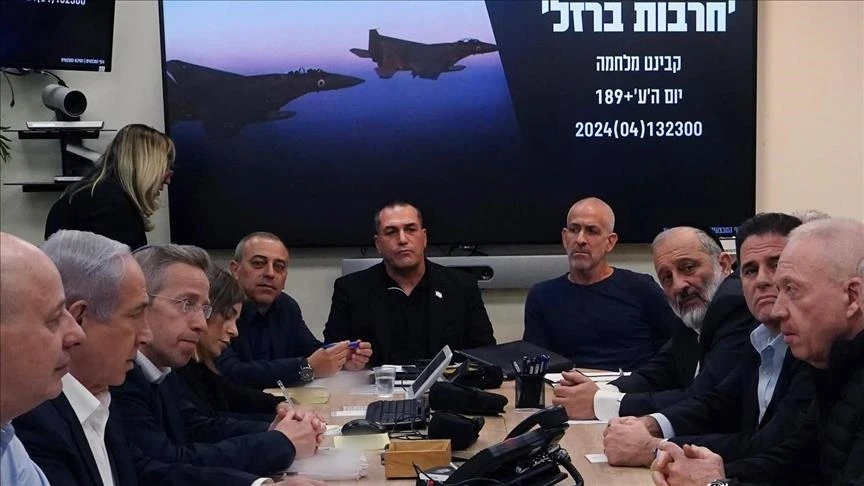Israeli cabinet engage in discussions on Lebanon truce framework

Stay tuned with 24 News HD Android App

Israel's security cabinet is discussing the terms of a truce with Hezbollah in south Lebanon, where Israeli troops are conducting a ground offensive, Energy Minister Eli Cohen said on Wednesday.
"There are discussions, I think it will still take time," Cohen told Israeli public radio.
According to Israel's Channel 12 television, Prime Minister Benjamin Netanyahu held talks with ministers on Tuesday evening on Israel's demands in return for a 60-day truce.
These include a Hezbollah pullback north of the Litani River, some 30 kilometers (20 miles) from the Israeli frontier, the Lebanese army's deployment along the border, an international intervention mechanism to enforce the truce, and a guarantee that Israel will maintain freedom of action in case of threats.
"Thanks to all the army's operations these past months and particularly these past weeks... Israel can come in a position of strength after the entire Hezbollah leadership was eliminated and over 2,000 Hezbollah terrorist infrastructures were hit," said Cohen, a former intelligence minister.
According to Israeli media, US President Joe Biden's Middle East adviser Brett McGurk and special envoy Amos Hochstein will head to the region Wednesday to meet Netanyahu and other Israeli officials to discuss conditions for a ceasefire with Hezbollah.
Their goal is to implement the deal prepared by Hochstein, which is based on UN Security Council Resolution 1701.
According to the resolution, which brought an end to Israel's last war with Hezbollah in 2006, only the Lebanese army and UN peacekeeping force UNIFIL would be deployed in areas south of Lebanon's Litani River near the Israeli border.
Israeli pundits say that an end to hostilities is within reach now that the Israeli army has considerably eroded Hezbollah's military capability.
Defence Minister Yoav Gallant said on Tuesday that Hezbollah's "residual capabilities in terms of missiles and rockets" were estimated to be at 20 percent, and added that it had been "pushed back from all villages" on the border with Israel.
Despite these setbacks, Hezbollah on Wednesday fired a surface-to-surface missile, setting off alert sirens in many towns and villages of north and central Israel as far as Netanya, north of Tel Aviv.
The missile disintegrated while airborne and did not cause casualties, the army said.
The war in Lebanon began late last month, nearly a year after Hezbollah began low-intensity cross-border fire into Israel in support of Hamas following its October 7, 2023 attack on Israel.
The war has killed at least 1,754 people in Lebanon since September 23, according to an AFP tally of health ministry figures, although the real number is likely to be higher due to gaps in the data.
Israel's military says it has lost 37 soldiers in its Lebanon campaign since it launched ground operations on September 30.
